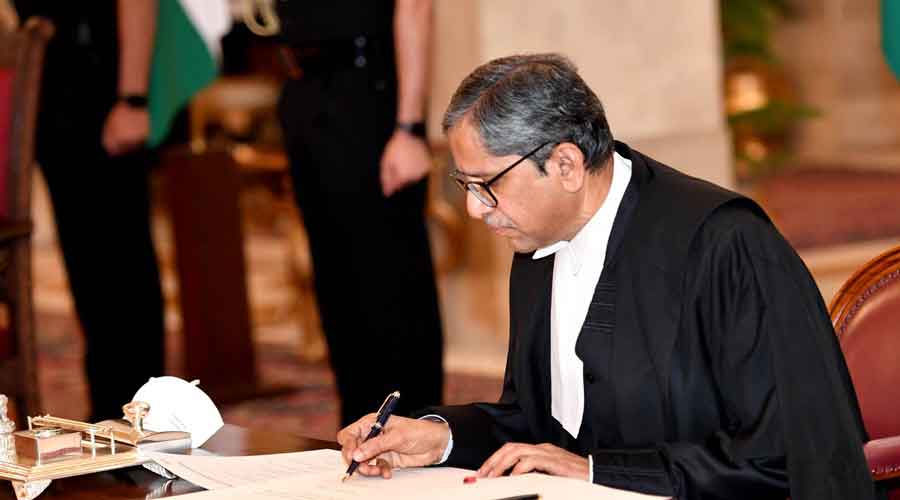The Chief Justice of India identified, quite correctly, two different challenges confronting the judiciary in two recent observations. In a reassuring message delivered during a keynote address at an awards ceremony at the Mumbai Press Club, Justice N.V. Ramana said that one of the principal goals of the judiciary remains the fortification of democracy. What is worrying, however, is that Mr Ramana proceeded to add a caveat: the judiciary, he stated, continues to pursue this noble goal in spite of ‘constraints’. He identified one such constraint as the media’s propensity to issue sermons on judgments that, in turn, often leads to the vilification of judges. On an earlier occasion, commenting on the clogging of courts, he had observed that unrefined law-making led to the mushrooming of contesting litigations, leading to courts being burdened with cases. Mr Ramana was of the opinion that enhancing the quality of scrutiny of bills as well as the energetic utilization of parliamentary Standing Committees could lead to the reduction of litigations and the unclogging of courts.
It will be reductive to interpret Mr Ramana’s twin messages as a critique of the failings of the legislature and the media. What he was hinting at, possibly, was quite the opposite. Each custodian of democracy — court, Parliament, media — has to be a collaborator in, what Mr Ramana has described as, ‘Mission Democracy’. Indeed, the future of India’s democracy depends on the spirit of collaboration among key institutions. But this cooperation would be possible only if these bodies were not to exceed their respective briefs. For instance, as the CJI pointed out, certain segments of the media — digital and social media — have demonstrated a worrying penchant for sensationalism that can be attributed to the compulsions of competitive journalism. At the same time, neither the court nor the government must attempt to stifle the media from its primary responsibility of speaking truth to power. Unfortunately, the shackling of the media is a phenomenon that is no longer rare in India. Democracy’s fruition is contingent upon a fundamental condition. Its stakeholders must find ways of discharging their duties without encroaching upon one another’s turf.

